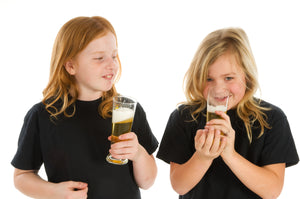California Domestic Soju Law
Livewire canned cocktails qualify as domestic soju and shochu under Section 23398.5 of the California Business and Professions Code, which defines domestically produced soju and shochu as "alcoholic beverages that contain not more than 24 percent of alcohol by volume and are derived from agricultural products."
Livewire canned cocktails are:
- 7.5% alcohol, fulfilling the first requirement.
- Produced in the United States, fulfilling the second requirement.
- Derived from agricultural products (corn, wheat, rye, sugar cane, etc), fulfilling the third and final requirement.
As such, they can be sold in any on-premise license authorized to sell wine.
While the the law is clear, the California Department of Alcoholic Beverage Control issued a further advisory, stating that "to qualify for the exception, the alcohol must be legitimate soju or shochu and be labeled as such."
Livewire canned cocktails fulfill these requirements as they are legitimate soju — soju is simply defined as distilled spirit, or burnt liquor, in Korean. It is very common for Soju to start with neutral grain spirit and have water and flavors added. In fact, one popular flavored soju in the United States is categorized by the TTB as "Neutral Spirits with Natural and Artificial Flavors" (click "printable version" to see the label).
The TTB definition of Neutral Spirits is "Spirits distilled from any material at or above 95% alcohol by volume." The Soju starts with high proof alcohol (95% ABV), and has water, flavorings, and sweeteners added to it.
To satisfy the labeling requirement, Livewire has SOJU printed towards the bottom of every can next to the date code.
We hope this is helpful to both holders of on-premise wine licenses as well as any ABC officers.



